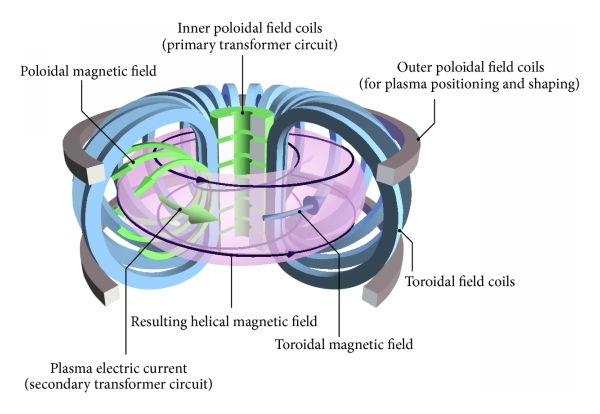A recent news item suggests that AI may help bring fusion power to the table on the long used but challenging Tokamak toroidal reactor architecture. This would be a major positive use of AI technology, if it proves sufficiently reliable:

Artificial intelligence (AI), a branch of computer science that is transforming scientific inquiry and industry, could now speed the development of safe, clean and virtually limitless fusion energy for generating electricity. A major step in this direction is under way at the U.S. Department of Energy’s (DOE) Princeton Plasma Physics Laboratory (PPPL) and Princeton University, where a team of scientists working with a Harvard graduate student is for the first time applying deep learning — a powerful new version of the machine learning form of AI — to forecast sudden disruptions that can halt fusion reactions and damage the doughnut-shaped tokamaks that house the reactions . . . . vast databases have enabled reliable predictions of disruptions on tokamaks other than those on which the system was trained — in this case from the smaller DIII-D to the larger JET. The achievement bodes well for the prediction of disruptions on ITER, a far larger and more powerful tokamak that will have to apply capabilities learned on today’s fusion facilities.
If this breakthrough actually happens, it will open up a transformation of the global energy sector, turning water into the world’s main energy resource. In turn, application to electric vehicle and hydrogen etc technologies would transform the transport sector. Desalination would open up vast desert areas for agriculture, and beyond, solar system colonisation would open up. That would transform the world from limits to growth models.
Providing, we don’t wreck our civilisation first; which seems to be where we are headed. END